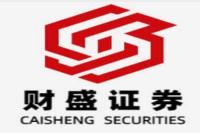Next US Treasury Secretary: Kevin Warsh – A Deep Dive into His Potential Appointment
Meta Description: Kevin Warsh, a potential US Treasury Secretary nominee, brings a unique blend of Ivy League education, Wall Street experience, and Federal Reserve expertise. This in-depth analysis explores his qualifications, potential impact on US economic policy, and what it means for the markets. #KevinWarsh #USTreasurySecretary #USEconomy #FederalReserve #TradePolicy
Imagine this: The global economy teeters on a knife's edge. Inflation simmers, debt ceilings loom, and trade wars rumble in the background. Suddenly, a name emerges from the whispers in Washington D.C. – Kevin Warsh. This isn't just any name; it's the name of a man poised to potentially helm the US Treasury Department, a position of immense power and influence, shaping the financial destiny of the world's largest economy. The very air crackles with anticipation – will he be the steady hand on the tiller, navigating turbulent waters with expertise and grace? Or will unforeseen currents sweep him off course? This isn't just a political appointment; it's a gamble with global consequences. Will his Wall Street pedigree translate to deft policy-making amidst international economic uncertainty? Will his advocacy for free trade soften the administration's protectionist stance? Will his background as a former Federal Reserve official calm the anxieties of investors worldwide? The answers, my friends, lie within the intricate details of his impressive career – a journey we shall now embark on together. Buckle up, because this is a ride unlike any other. We'll dissect his background, analyze his potential impact, and unravel the implications of his potential appointment for the United States and the global economy. Get ready to delve into the fascinating world of high-stakes finance and political maneuvering!
Kevin Warsh: The Man, the Myth, the Potential Treasury Secretary
Kevin Warsh isn't just another name tossed into the political arena; he's a seasoned veteran of the financial world, a product of elite institutions, and a figure whose potential appointment as US Treasury Secretary sends shockwaves through the global financial system. His background is a compelling blend of academic excellence, Wall Street acumen, and high-level government experience, a trifecta that makes him both a compelling and controversial candidate.
His resume reads like a who's-who of elite institutions: Stanford University (BA), Harvard Law School (JD). This isn't just about impressive credentials; it's about the networks and ideologies forged within those hallowed halls. These Ivy League institutions cultivate a specific type of intellect, a strategic approach to problem-solving that often characterizes his public statements and likely policy proposals.
But academia is only one side of the coin. Warsh's Wall Street experience at Morgan Stanley, a titan of the financial industry, provides invaluable insight into the practical realities of finance. He's not just a theorist; he's walked the walk, navigating the complex world of high-stakes investments and market fluctuations. This firsthand experience could prove invaluable in his role as Treasury Secretary, providing a crucial bridge between the theoretical and the practical.
Moreover, his time at the Federal Reserve Board, serving under Chairman Ben Bernanke during the tumultuous 2008 financial crisis, offers a unique perspective. He wasn't just an observer; he was a key player, involved in crucial decision-making processes that shaped the response to the crisis. This firsthand experience with crisis management is a rare and valuable asset.
Warsh's Stance on Key Economic Issues
Warsh's economic philosophy isn’t monolithic, but several key themes emerge from his public statements and actions:
-
Fiscal Responsibility: He's a known advocate for fiscal discipline, expressing concerns about the burgeoning national debt. This stance could lead to a more cautious approach to government spending and tax cuts, potentially clashing with the sometimes expansive fiscal policies of the current administration. Expect a push for responsible fiscal management.
-
Trade: While not a staunch protectionist, Warsh isn't a free-trade absolutist either. He has advocated for a more nuanced approach to trade, focusing on addressing trade imbalances and ensuring fair competition, suggesting a less confrontational trade policy than previous administrations. This more balanced approach could lead to a renegotiation of existing trade agreements, rather than outright trade wars.
-
Monetary Policy: His time at the Federal Reserve offers a unique lens into monetary policy debates. He is likely to favor a measured, data-driven approach to monetary policy decisions, ensuring that any actions taken are well-considered and supported by strong economic data.
-
Regulatory Reform: His experience in both the private and public sectors positions him to understand the complexities of financial regulation. He is likely to favor a balanced approach, promoting both financial stability and economic growth, seeking to improve, not dismantle, existing regulatory frameworks.
Table 1: Kevin Warsh's Key Policy Positions
| Policy Area | Stance | Potential Impact |
|----------------------|----------------------------------------------|---------------------------------------------------|
| Fiscal Policy | Fiscal responsibility, debt reduction | Less government spending, potentially higher taxes |
| Trade Policy | Nuanced approach, addressing trade imbalances | Less protectionist, more negotiation-focused |
| Monetary Policy | Measured, data-driven approach | Stable monetary policy, prioritizing inflation control |
| Regulatory Reform | Balanced approach, promoting stability & growth | Targeted improvements, not complete deregulation |
The Market's Reaction
The potential appointment of Kevin Warsh has already sent ripples through the financial markets. Analysts at Deutsche Bank and other institutions cite his potential nomination as a contributing factor to a recent rebound in US Treasury bonds. The market seems to see him as a stabilizing force, someone who can navigate the economic complexities of the times. This perception, whether accurate or not, is a crucial factor in his overall impact.
Frequently Asked Questions (FAQs)
Q1: What is Kevin Warsh's political affiliation?
A1: Warsh is generally considered a Republican, although he's not known for strictly partisan rhetoric. His alignment with the Republican party is likely to influence his policy priorities.
Q2: What are the potential downsides of Warsh's appointment?
A2: His relatively limited experience in direct government leadership and his close ties to Wall Street could be viewed as potential drawbacks. Some critics might raise concerns about potential conflicts of interest.
Q3: How does Warsh's experience at the Federal Reserve inform his economic views?
A3: His time at the Fed during the 2008 financial crisis likely shaped his views on crisis management and the importance of proactive regulatory oversight.
Q4: What is Warsh's stance on environmental regulations?
A4: Public information on Warsh's environmental views is limited. Further research is needed to ascertain his stance on this crucial policy area. However, his overall approach, which prioritizes economic growth, might suggest a more business-friendly approach to environmental regulations.
Q5: How might Warsh's appointment affect international relations?
A5: His potential approach to trade and economic policy could significantly impact international relations. A more balanced trade policy could lead to improved relations with key trading partners.
Q6: What is the timeline for Warsh's potential confirmation?
A6: The confirmation process would involve Senate hearings and a vote, which could take several weeks or even months depending on the political climate. His nomination will face thorough vetting and potential challenges.
Conclusion: A Calculated Risk
Kevin Warsh's potential appointment as US Treasury Secretary represents a calculated risk. His considerable experience in finance, his academic credentials, and his background at the Federal Reserve make him a highly qualified candidate. However, questions remain about his limited government leadership experience and his potential conflicts of interest.
The markets' positive reaction to the possibility of his appointment suggests a degree of confidence in his ability to navigate the complexities of the current economic landscape. However, his success will depend on his ability to bridge the gap between his Wall Street background and the demands of public service. Ultimately, his legacy will be determined by his actions, not just his impressive qualifications. The coming months will be crucial in determining the full impact of this potential appointment. The world watches with bated breath.



